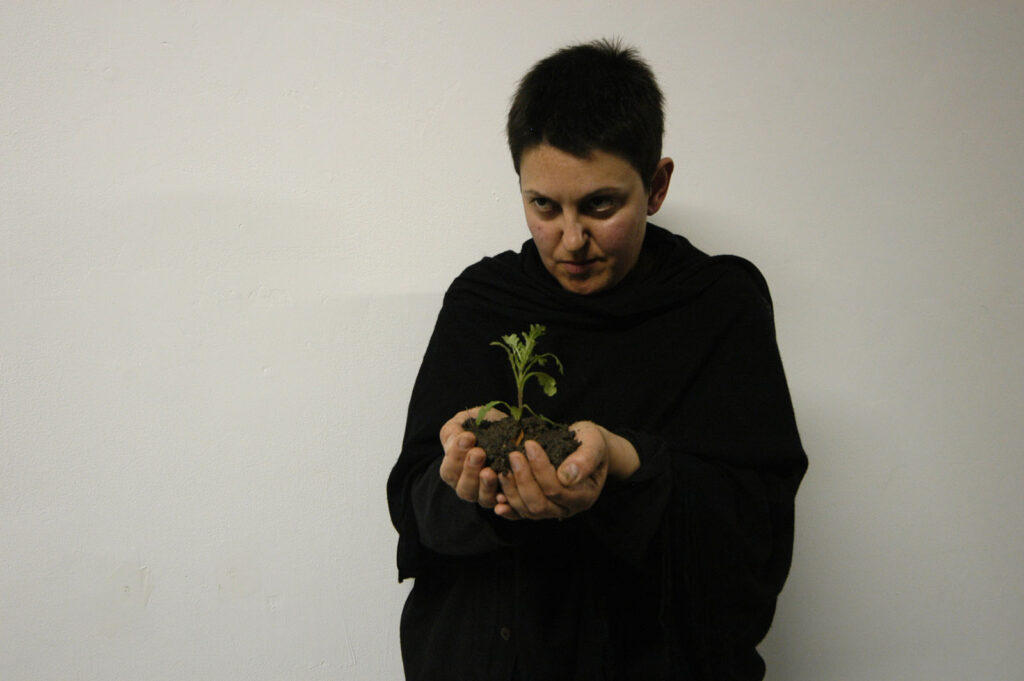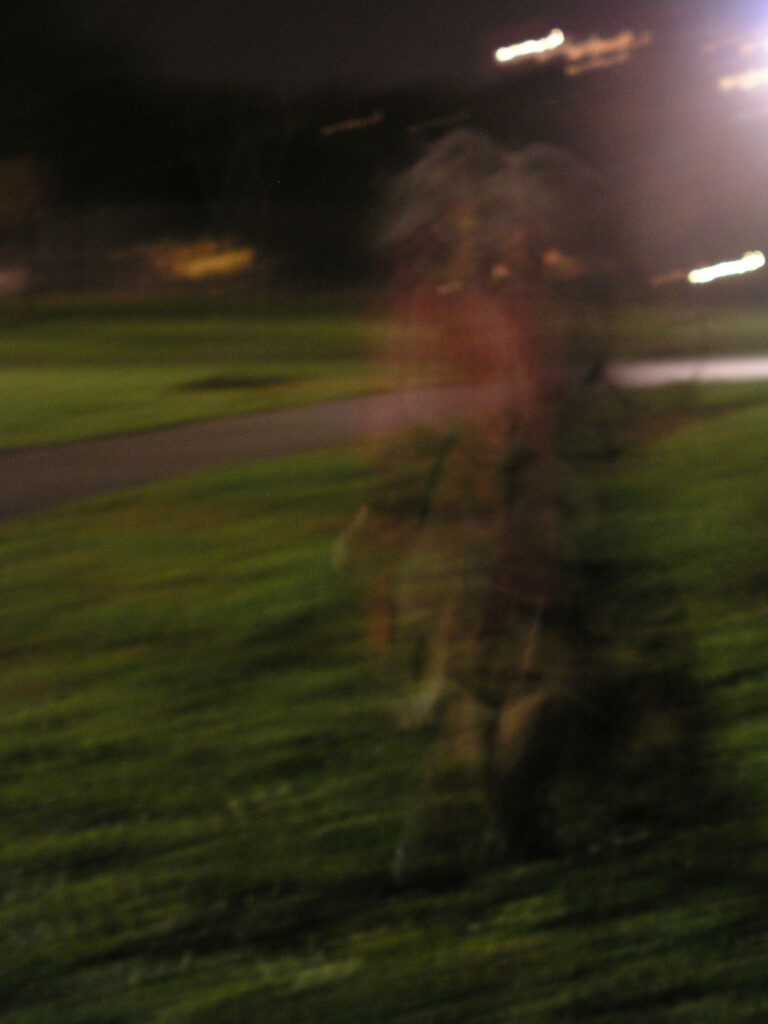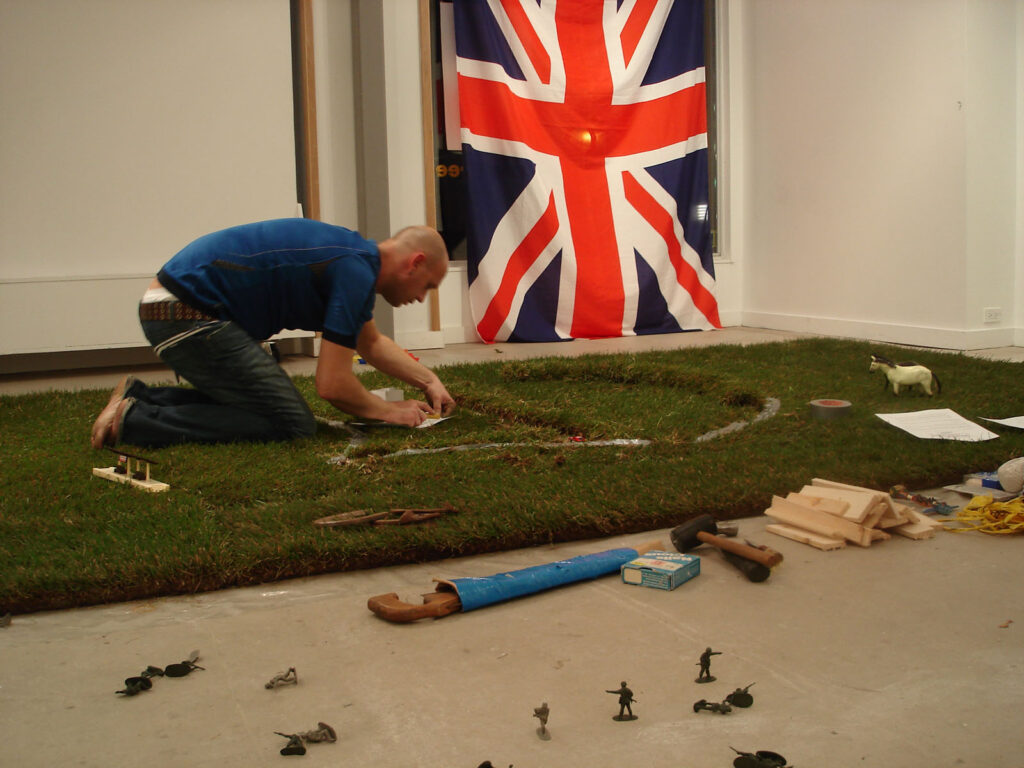Issues of identity are at the centre of IDea, FADO’s multi-year international performance art series. Chris Barker writes that cultural politics are about “the power to name; the power to represent common sense; the power to create ‘official versions’; and the power to represent the legitimate social world.” These powers speak to identity in a territorial, institutionalized framework, but performance practices offer the possibility of turning their presumed weaknesses — contingency, ephemerality and aterritoriality — into strengths, by offering a potentially decolonized, non-institutional forum.
The concept of identity has been at the forefront of art discourse since the 1980s. Performance artists have been particularly concerned with how our various identities are constructed, how they mark us and how they influence self-understanding. At the same time, artists have also used performance tactics to problematize and transform their identities. In recent years, the debate has shifted to examine identity issues in subtler, less didactic ways, using the territory of identity as a ground for complex and often ambivalent readings of subjectivity, hybridity and representation. IDea draws from this growing body of work.
The series considers a broad range of identity labels, including gender, skin colour, ethnic origin, religion, sexual orientation, physical appearance, familial role, economic status, political affiliation and profession, to name a few of the more obvious possibilities. In blunt terms, the series will circulate around an underlying set of interrelated questions. How do we accept or resist these multiple identities? Which do we choose to embrace, and why? What identity labels are misleading, unhelpful or irrelevant, and in what ways? How do these labels intersect with one another? How do they determine the nature and quality of our lives? How do they contribute to a sense of belonging or alienation?
While these questions inform the series, they are only a contextualizing lens, not a prescription for how individual projects should or will be structured. IDea is not about representation, or the politics of difference, which is to say that the intention is not to assemble a collection that presents one of each kind. We are not encouraging strident political statements (though there is certainly room for them), but rather, featuring works that reveal something about how the creators understand and situate themselves. Along the way, we also hope to track how artists use performance tactics to circumvent prescribed attitudes and behaviours around identity.
IDea seeks to consider a range of bodily identities — physical, social, political, emotional, and spiritual. To provide further context for the series, we will commission critical texts that respond to each of the performances. These texts will come from an interdisciplinary variety of thinkers in the realms of philosophy, religion, politics and science.
Presented in the context of the 6th 7a*11d International Festival of Performance Art by Fado Performance Inc.
Curated by Paul COUILLARD

Vassya VASSILEVA
In Search of Friedrich Nichtmargen/From Uncreative Travel Book XXIII
[Surface Area 510,100,934 km2 196.950.168 miles2 ]
Thursday October 19 8 pm
XPACE
Friday October 20 to Saturday October 28 5 pm
Toronto Free Gallery

Aiyanna MARACLE
ndn wars are alive, and … well?
Sunday October 22 6 – 9 pm
Trinity Bellwoods Park

Glyn DAVIES-MARSHALL
Somewhere Between Wakefield and Wichita, Part 1: Palamino
Tuesday October 24 6 pm – 10 pm
Toronto Free Gallery
Somewhere Between Wakefield and Wichita, Part 2: Number 33
Wednesday October 25 4 pm – 10 pm
Toronto Free Gallery
Somewhere Between Wakefield and Wichita, Part 3: The Wichita Line Man Is Still on the Line
Thursday October 26 6 pm – 10 pm
Toronto Free Gallery
See individual artist pages for descriptions.
FADO’s project page for IDea

